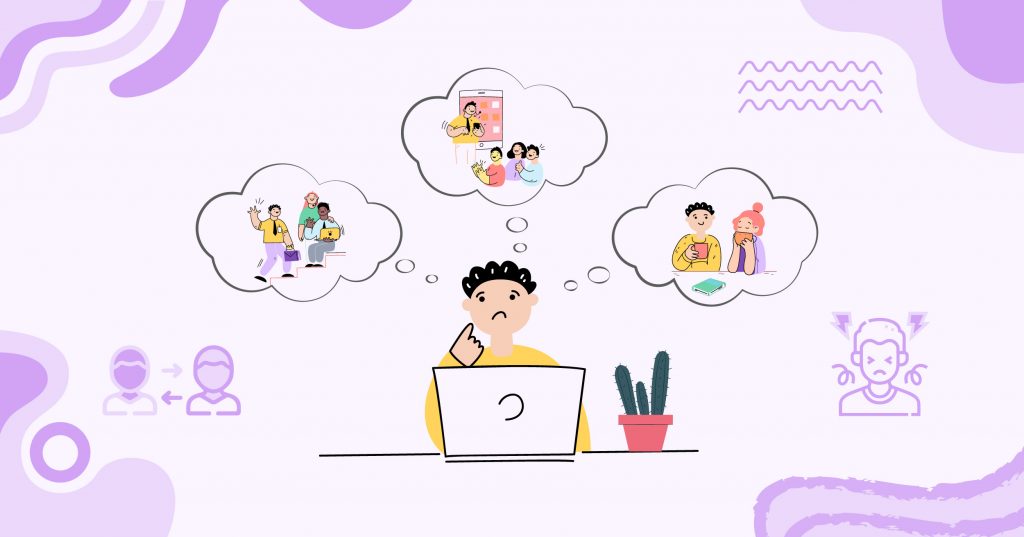Understand the Struggle with Boundaries
Ever felt that twinge of guilt when you try to set boundaries? You’re not alone! For many of us, the mere idea of drawing a line can make us squirm a bit inside. We live in a world that often cheers on the ‘always-on’ mode—be available, keep hustling, and say ‘yes’ to everything! But what happens when your heart screams ‘no’ while you nod yes? Or when your workday bleeds into yet another late night, all in the name of meeting relentless demands?
This constant stretch beyond our limits isn’t just tiring—it can spiral into stress, burnout, and a nagging feeling that we’ve lost touch with what we actually need and want. Whether it’s in our personal life, where we can’t seem to refuse a favor, or in our professional life, where we’re burning the midnight oil way too often, the struggle to set healthy boundaries is real and oh-so-relatable.
In personal relationships, it might look something like always being the one who gives in or adjusts. Perhaps it’s continually agreeing to plans you’re not enthusiastic about, or lending an ear every time someone needs to vent, regardless of your own emotional state. In the professional realm, it might manifest as saying ‘yes’ to every project, irrespective of your current workload, or hesitating to speak up about needing a break. Over time, this pattern of ignoring your boundaries for the sake of others’ needs or workplace demands can erode your mental health, leading to feelings of exhaustion, resentment, and detachment.
Let’s dive deeper: This chronic overextension is not just about being busy; it’s about a fundamental disconnect between our actions and our needs. When we fail to set boundaries, we are essentially telling ourselves that our needs aren’t as important as the needs of others, or that our well-being is secondary to our professional success. This mindset can lead us down a slippery slope where the line between personal time and obligations becomes blurred, making it increasingly difficult to carve out time for self-care and relaxation.
So, why do we do this to ourselves? Part of the challenge is cultural; many of us are brought up to believe that being helpful and accommodating are virtues. Meanwhile, the modern work ethic often equates longer hours with greater dedication and potential for success. Another part is psychological; setting boundaries can feel uncomfortable because it often involves disappointing others or confronting the possibility of conflict.
Why Boundaries Work
Neurologically, humans are wired for connection, an evolutionary trait that has enabled us to build societies and thrive. This wiring can sometimes make us prioritize the needs and desires of others above our own, a mechanism deeply rooted in our brain’s reward system. When we please others, our brain releases dopamine—a neurotransmitter associated with feelings of pleasure and satisfaction. This release can make us feel good temporarily and reinforce behaviors that prioritize others’ needs.
However, there’s a flip side to this biological coin. Continuously neglecting our personal needs in favor of others’ can lead to an imbalance in our stress hormones, such as cortisol, leading to chronic stress and eventually resentment. This cycle is not only mentally exhausting but can also have tangible physical health implications, like increased risk of chronic diseases due to sustained high cortisol levels.
Setting boundaries is essentially a process of retraining our brains to recognize our own needs as legitimate and important. This is more than just learning to say “no”—it’s about reshaping how we think about and respond to demands on our time and energy. When we assertively communicate our limits, we are essentially telling our brain to value our wellbeing as much as we value the happiness of others. This can initially feel uncomfortable because it goes against our ingrained patterns of behavior.
Over time, as we consistently enforce our boundaries, our brain’s neural pathways—specifically those involved in decision-making and emotional regulation—begin to adjust. This neural plasticity, the brain’s ability to change and adapt as a result of experience, is key to making boundary-setting feel more natural. For example, the more we practice assertive communication, the more we strengthen the neural circuits involved in assertiveness. Similarly, by decreasing our stress levels through boundary-setting, we reduce the overactivation of the amygdala (the brain’s fear center), which is often triggered in stressful interactions.
This transformation in our neural architecture not only makes it easier to say “no” or demand respect for our time, but it also increases our overall emotional resilience. Emotional resilience refers to our ability to adapt to stressful situations and cope with life’s ups and downs. With stronger boundaries, we’re less likely to feel overwhelmed or depleted by the demands of others. Instead, we can maintain a healthier balance between giving to others and caring for ourselves, leading to reduced stress, better relationships, and a more fulfilling life.
Subscribe to newsletter
Get your Gut Health Starter Guide right now.
Elevate your Tuesdays with practical, science-backed wisdom propelling you forward on your gut health journey.

Practical Steps to Empower Yourself
- Self-reflection: Start by understanding your limits. Identify what you can tolerate and accept, as well as what makes you feel uncomfortable or stressed. Recognizing these feelings helps in setting clear and precise boundaries.
- Communicate clearly: Once you know what your boundaries are, express them clearly, respectfully, and assertively. Avoid justifying, apologizing for, or explaining your boundaries excessively. Remember, “No” is a complete sentence.
- Start small: If setting boundaries feels daunting, start with small, non-threatening boundaries to build your confidence. This can be as simple as not checking emails during dinner or dedicating time for a hobby every week.
- Practice self-awareness: Continuously check in with yourself. If a situation makes you uncomfortable, ask yourself why and whether a boundary has been crossed. This ongoing awareness is crucial for maintaining and adjusting boundaries as needed.
- Seek support: If you find it difficult to maintain boundaries, consider seeking support from friends, family, or a professional. They can offer encouragement and hold you accountable to your self-care goals.
Success Through Boundaries
Julia, a dedicated project manager at a bustling tech firm, found herself caught in the relentless cycle of late nights and endless work emails. The demands of her job consumed her, eating into her personal life and leaving little room for relaxation or joy. “I was always the last one out of the office, my laptop was my constant companion, and slowly, I stopped doing the things I loved,” Julia recounts.
The turning point came when Julia faced severe burnout and anxiety. Recognizing that something had to give, she took a bold step towards setting clear boundaries. She decided that work emails would no longer invade her evenings—7 PM became her sacred cutoff time. Moreover, she scheduled regular ‘me time’ into her calendar, non-negotiable periods dedicated to her hobbies and relaxation.
“It didn’t change overnight, but sticking to these boundaries gradually transformed my life,” Julia reflects. Within a few months, she started to see a noticeable decrease in her stress levels. Relationships with her family and friends blossomed again as she carved out time to nurture these connections. Rediscovering her love for painting and yoga, Julia found joy in moments she had pushed aside.
Julia’s story is a powerful testament to the transformative impact of setting boundaries. “Setting boundaries has not only improved my mental health but has also made me more effective at work. I’ve learned that I can be professional and still prioritize my well-being,” she shares. This new balance allowed her to be more present and focused during work hours, increasing her productivity and satisfaction.
The positive changes in Julia’s life highlight the profound benefits that come with establishing and maintaining boundaries. Her experience serves as an inspiration for others grappling with similar challenges, showing that while the path to setting boundaries may be fraught with difficulty, the rewards—enhanced well-being, deeper personal connections, and a renewed sense of self—are well worth the effort.
“Today, I advocate for work-life balance in my team, encouraging my colleagues to set their boundaries and respect others’. It’s about creating a culture where personal health is a priority,” Julia concludes.


















